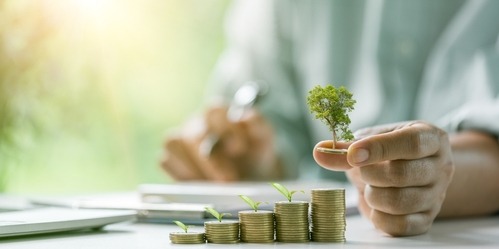Resolving the saving-spending schism
In Islam, wealth is not only a means to survival but a trust (Amanah).
The Holy scripture reminds us to spend wisely, to avoid extravagance, and to protect ourselves and our families from harm. Historically, Muslims rode this balance naturally because the money itself encouraged it: gold dinars and silver dirhams carried intrinsic value.
Today’s fiat currencies behave differently. They depreciate silently under inflation, eroding our savings year by year. Across Europe, the Gulf, Southeast Asia and Africa, the same frustrations recur: a month’s salary buys less each year, foreign fees quietly tax cross-border families, and young entrepreneurs from Lagos to London, Jeddah to Jakarta ask why the tools in their pockets can’t help them build wealth.
The conventional card problem
The conventional debit card is a symbol of this disconnect. It is built for convenience, not for preservation. At best you receive a small cash back, while most of the value generated by your transactions flows to issuers and intermediaries.
For Muslims, there is another layer of unease. Many savings and credit products hinge on interest (Riba), something we are commanded to avoid. This often forces a compromise: use what is convenient today, even if it chips away at tomorrow.
Shifting sands
New experiments suggest other possibilities. In the UK, some fintechs permit balances to earn yield until the second you spend. In Bahrain and the UAE, regulators have begun licensing cards that link digital assets to everyday payments. In Nigeria, where currency instability is a daily reality, families use stablecoins as a store of value, though they still struggle to translate that into rent or groceries.
What these efforts share is a recognition that people are not only spenders or savers. They are both, and they want tools that respect their values as much as their convenience.
A community-first philosophy
The more profound shift is philosophical. Islam teaches us that wealth should circulate fairly and benefit the community, not just accumulate for the few. Finance, then, can be seen as a cooperative act.
Every purchase generates value: in fees, in data, in merchant relationships. Under the current system, that value is captured by companies. In a community-first model, it could flow back to members: into their savings, into mutual protection, into their neighbor’s small business.
Some associations are already exploring this path. At The LifeDAO, for instance, our community has been experimenting with cooperative models of finance. As part of that work, a debit card is being developed that shares surplus with members and keeps funds productive until the point of spending.
It is a singular example, but it illustrates how modern tools can echo our historical practices: money that grows while it moves, in service of the community.
Why it matters for Muslims today
For policymakers in the GCC and Southeast Asia, such approaches align with ambitions to promote financial inclusion and Shariah-compliant innovation.
For African markets, where currency volatility undermines family safety, the ability to hold value in stable instruments and spend locally is more than convenience; it is protection.
For Muslims everywhere, the stakes are higher than convenience. Ethical finance is not a niche preference but a principle of faith. To avoid Riba, to protect wealth from erosion, to ensure surplus benefits many rather than few, these are not just economic goals, but spiritual ones.
Rethinking everyday finance
Skeptics will rightly point to risk. Any tool that blends payments and growth must meet a high bar: strong compliance, plain-English disclosures, and careful asset choices. Community ownership is not a license for carelessness; it is a call to be more disciplined.
Education matters, but so does design. Systems that separate utility from growth leave people living paycheck to paycheck. Systems that integrate them allow even a cup of coffee to, in a small way, make you richer, just as holding a gold coin once did.
Some attempts are already underway. Many more are needed. What matters is that we stop accepting the false divide between spending and building. Our financial tools should help us do both quietly, ethically, and in line with the trust we hold as Muslims.
Sharene Lee is the chief operating officer & co-founder at Takadao

Sharene Lee